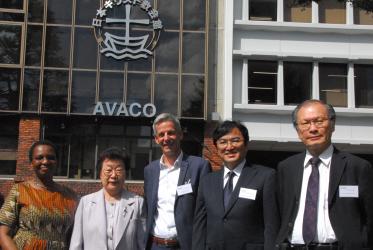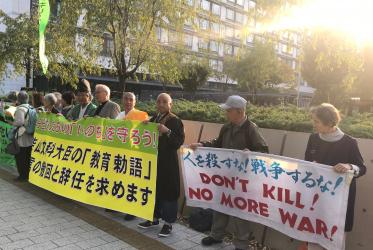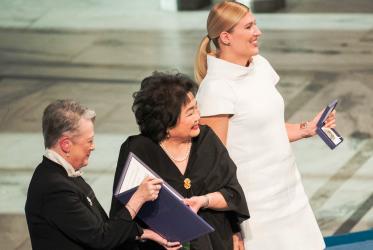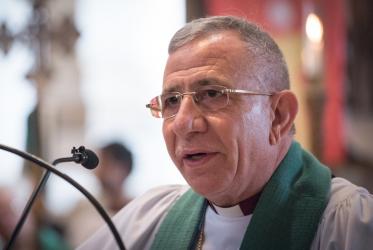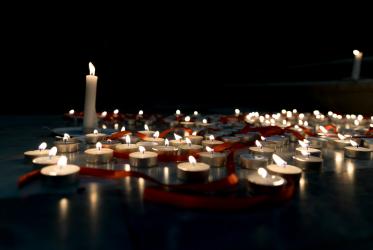Displaying 1 - 20 of 27
11 March 2021
WCC commemorates life of Rev. Tsutomu Shoji
02 September 2020
In Japan, theologians reflect on today’s global manifestations of racism
18 September 2019
Bishop Younan awarded Niwano Peace Prize
22 February 2017
Prayer and hope mark anniversary of atomic bombings
05 August 2016
“The world must be freed of nuclear weapons”
06 August 2015

